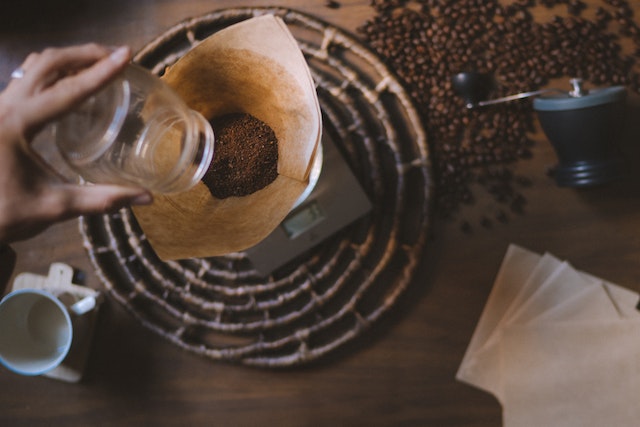If you’re constantly searching for the best coffee beans in the UAE, that’s a tell-tale sign of you being a true connoisseur who settles for nothing less than the tastiest cup of coffee.
Over the years, you’ve probably experimented with different roasts, refined your recipe and perfected your brewing technique. And now you have your routine down to a T.
But what if there’s a little more to the perfect cup of coffee than you think? What if there are certain subtleties that you may have overlooked in your coffee making— things that could be steering your coffee experience in a different direction without you even realising it?
Read on to discover five things you didn’t know could influence the taste and quality of your coffee.
5 Factors That Affect The Quality Of Your Coffee
1. Water Quality
Coffee is 98% water, so it stands to reason that poor-quality water can take away from the flavour of your brew.
You’re probably wondering what “poor-quality water” even means. In the world of coffee, it refers to water with the following traits:
- Non-neutral pH Levels – Water has a natural pH level of around 6.5-7. Anything lower than 6.5 is considered acidic, while anything higher than 7 is deemed alkaline. If your water is on either side of the spectrum, it could have a less-than-desirable effect on the taste of your coffee. That’s because acidic water often results in a sour flavour, whereas alkaline water is usually the culprit behind a bland brew.
- Extreme Total Dissolved Solids (TDS) Count – TDS is your water’s mineral content — calcium, magnesium, iron, etc. If these elements exist in high concentrations, they can over-extract your coffee, leaving you with an overpowering, bitter cup and a sandpaper mouthfeel. Alternatively, if your water is too low in minerals, it could under-extract your blend, resulting in a weak, under-flavoured brew.
Action item: Aim for quality, filtered water with a pH level of around 6.5-7 and a TDS count between 150 and 250 parts per million (ppm).
2. The Freshness Of The Coffee Beans
If there’s one thing that all avid coffee drinkers agree on, it’s that the fresher the beans are, the better the flavour will be.
Once roasted, coffee beans start to lose their freshness because of exposure to oxygen. To counteract this, coffee roasters usually seal their coffee beans in airtight containers.
Still, other factors, like light, heat and humidity, can sneak their way into the mix and cause the beans to lose their potency if they are not stored properly.
Action item: Roll up your coffee bag, seal it tight with an elastic band and put it in an airtight container. Keep it cool somewhere nice and dry, out of direct sunlight and away from any heat sources like an oven, for example.
3. Coffee Grind Freshness
Buying pre-ground coffee is a big no-no among coffee enthusiasts – and for a good reason.
When you grind the beans, they likely last from 30 minutes to an hour before they start to lose their flavour. That’s because grinding the beans exposes them to the elements that can lead them to spoil.
And contrary to popular belief, keeping ground coffee in the fridge will not make it last longer. In fact, the moisture and the odours from other foods in your fridge could hasten its degradation and affect its taste and aroma.
Action item: Grind your beans as close to the brewing time as possible to preserve their freshness. You could also invest in a quality grinder, like a manual hand mill for a consistent grind size.

4. Brewing Temperature
Brewing coffee at a low temperature tends to bring out its acidity, whereas increasing the temperature can result in a full-bodied, sweet cup.
Take espresso, for example. Most baristas tend to brew espresso at 90.5°C to 96°C. Exceeding the 96°C mark can sometimes lead to a powdery texture, while temperatures lower than 90.5°C can leave your sweetness a little wanting.
Action item: With espresso beans in Dubai, the optimal brewing temperature hovers at around or just above 94°C.
5. Coffee Machines And Brewing Equipment Cleanliness
Your brewing equipment is the vessel through which all your coffee making magic happens. As such, you must regularly clean and maintain it to preserve the quality of the coffee it produces.
Every cup of brewed coffee leaves behind some residue that, if left unchecked, forms an oily layer in the filters and machine head. Over time, this buildup of coffee remnants can damage your equipment and change the taste of your coffee.
Add milk to the equation, and you could be staring down the barrel of bacterial growth.
Action item: Clean your grinders and storage containers every week. For your machine, you might want to run a vinegar solution through it every month to rid it of any limescale buildups. But make sure to rinse it thoroughly before your next use.
The Perfect Cup
The key takeaway here is that even the most minor details can make a big difference in the quality and taste of your coffee.
The allure of coffee lies in its complexity and its unlimited possibilities. So, dare to step outside your routine and try some of the coffee making tips mentioned in this article.
Who knows? You may find the one thing that takes your coffee from average to extraordinarily delicious.




